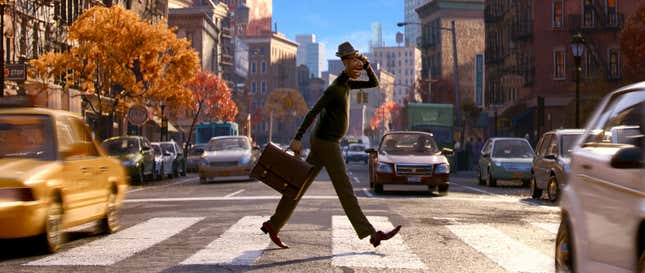
This morning, I began the celebration of my 42nd year on Earth with Esomeprazole (for acid reflux), Lisinopril (for blood pressure), a vitamin C pill, a vitamin D pill, and a zinc supplement. At some point today, I will drink a cup of bone broth. And maybe this evening I will eat a gluten-free slice of cake accompanied by a scoop of oat milk ice cream. There’s no more expository relationship than the one between us and what we decide to put in our bodies, and my choices are deliberate and conspicuous reactions to my respect for, and fear of, death.
An irony of existing while Black and male and middle-aged is that as soon as you advance out of the age range where you’re at a wildly disproportionate risk of dying violently, you age into the space where you’re disproportionately at risk of dying from unnaturally fraught “natural” causes. We age out of bullets and into high blood pressure. And this year, more than any year I’ve been alive, has been a ceaseless reminder of the proximity of death. Death in the air. Death at Giant Eagle. Death at the barbershop. Death while hugging your dad.
Anyway, I’ve been thinking about this while attempting to deconstruct my feelings about Pixar’s Soul. Namely, why I loved it while so many of y’all didn’t.
I usually don’t bother with the sort of sensibility excavation happening here, because spending bandwidth to specifically explain why I liked a thing that other people didn’t just feels time-consuming and dumb as fuck. What makes the Soul discourse different is that, after reading some of the criticism of it, it felt like I watched a completely different movie. But I didn’t. And I actually believe that many of the critiques are valid. But the movie’s flaws just didn’t register with me while watching it because of what I was bringing to it.
The death thing is the most obvious. Soon after getting the opportunity of a lifetime, Joe Garner (voiced by Jamie Foxx) dies, and his death shook me so hard that when my daughter asked “Daddy, did he die?” I was too shaken to answer. And when a piece of art shakes me like that, it has me hooked. And then there’s the “middle-aged Black man choosing to pursue his passion instead of a safer vocation” thing. And the “struggle to live in the moment and appreciate life instead of waiting for professional and artistic validations as proof of living” thing. And these are my things! And then it also reminded me of Inside Out (my favorite Pixar film) and Defending Your Life (one of my favorite comedies). From that point, the barbershop and jazz and mom scenes—the “Black” scenes, essentially—felt like gravy.
And that’s exactly what they were. Gravy. Soul is a movie about a Black guy, but it is not a Black movie. It could have been, but it wasn’t. And it feels like the bulk of the disappointments with it stem from that point. Which is a valid one. Soul was not originally conceived to be about a Black character and that construction is obvious with some of the choices in it. Joe loses his body (and his Blackness) almost immediately, and perhaps if Soul was Black from the ground up—with a Black lead director (Kemp Powers codirected, but this is Pete Docter’s film)—it would have been more cognizant of the frustrating historical context of Black Disney characters existing outside of their natural bodies. And maybe it would’ve chosen a different actress to voice 22. I wasn’t as bothered with Tina Fey as so many others seem to be—I wasn’t bothered at all, to be honest—and the choice to give 22 a middle-aged white woman’s voice was even explained in the movie in a dig at middle-aged white women. But maybe a “Black from the ground up” movie would’ve anticipated this reaction and cast Issa Rae or Michaela Coel or any other Black comedian with a distinct voice instead. And maybe the Freaky Friday subplot with Joe and the cat would’ve been nixed. And maybe a girlfriend and/or some homies would’ve been created too. And maybe it would’ve been more sensitive to how it would feel to (some) Black audiences to see Joe essentially sacrifice himself so the white female-voiced 22 could live. And maybe—and most importantly—it would’ve been something completely fresh, instead of Inside Out-ish.
(Also, this is not a kid’s movie at all. It is daaaaaaaaaark as fuck and somehow makes the afterlife both as abstract and as Kafkaesque as possible. If there’s a 7-year-old alive who understands what’s happening in this movie, that 7-year-old needs to run for president. Of the galaxy.)
Again, I believe these critiques are valid. And it’s not so much that I disagree(d) with them. I’d love to see a Black from the ground up Pixar film too. It’s just...the flaws just didn’t matter enough to me while watching it to take away from my enjoyment of it. It’s like “Yeah, I see your point about that thing! And that other thing! I just don’t care enough about those things, with this movie, for them to bother me like they’re bothering you.” And maybe this difference in perspective is also somewhat due to expectation. I was not anticipating this movie. I’d actually forgotten about it, but was reminded of it in an ad on Christmas Day, and decided to watch it in-between NBA games. Maybe if I was expecting Pixar Moonlight I’d feel differently, but I wasn’t so I didn’t.
Anyway, I’m off to get my 10,000 daily steps in. I hate doing this! But I will continue to because I can’t hoop right now and I need to replace basketball with something active so that I can keep having birthdays! Bye!